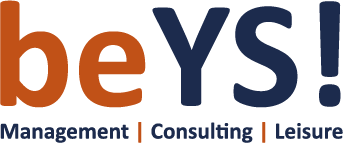In most cases, the release releases the debtor from all debts given to by the plan or disallowed, aided by the exclusion of certain debts referenced in 11 U.S.C. В§ 1328. Debts maybe maybe maybe maybe maybe not released in chapter 13 include particular long haul responsibilities (such as for instance a house home loan), debts for alimony or kid help, particular fees, debts for government that is most funded or guaranteed in full academic loans or advantage overpayments, debts due to death or injury due to driving while intoxicated or intoxicated by medications, and debts for restitution or even a criminal fine contained in a phrase in the debtor’s conviction of a criminal activity. To your level that they’re perhaps not completely compensated beneath the chapter 13 plan, the debtor it’s still accountable for these debts following the bankruptcy instance has concluded. Debts for cash or home acquired by false pretenses, debts for fraudulence or defalcation while acting in a capacity that is fiduciary and debts for restitution or damages granted in a civil situation for willful or harmful actions because of the debtor that can cause injury or death to an individual would be released unless a creditor timely files and prevails in a action to own such debts declared nondischargeable. 11 U.S.C. §§ 1328, 523(c); Fed. R. Bankr. P. 4007(c).
The release in a chapter 13 situation is significantly wider compared to a chapter 7 instance. Debts dischargeable in a chapter 13, not in chapter 7, consist of debts for willful and injury that is malicious home (rather than an individual), debts incurred to pay for nondischargeable taxation responsibilities, and debts as a result of home settlements in divorce procedures or separation procedures. 11 U.S.C. В§ 1328(a).
The Chapter 13 Hardship Discharge
After verification of an idea, circumstances may arise that stop the debtor from doing the program. Such circumstances, the debtor may ask the court to give a “hardship release.” 11 U.S.C. В§ 1328(b). Generally speaking, this kind of release is present only when: (1) the debtor’s failure to complete plan repayments is because of circumstances beyond the debtor’s control and through no fault associated with the debtor; (2) creditors have obtained at least up to they payday loans NC might have obtained in a chapter 7 liquidation instance; and (3) modification associated with plan is certainly not possible. damage or disease that precludes work enough to invest in a good modified plan may act as the cornerstone for the difficulty release. The difficulty release is more restricted compared to the release described above and will not affect any debts which are nondischargeable in a chapter 7 instance. 11 U.S.C. В§ 523.
Records
- The “current month-to-month earnings” gotten by the debtor is a precise term into the Bankruptcy Code and means the common monthly income gotten throughout the six calendar months before commencement associated with bankruptcy instance, including regular contributions to home costs from nondebtors and including earnings through the debtor’s partner if the petition is a joint petition, although not including social protection earnings or specific payments made as the debtor may be the target of specific crimes. 11 U.S.C. В§ 101(10A).
- In new york and Alabama, bankruptcy administrators perform comparable functions that U.S. trustees perform when you look at the staying states that are forty-eight. The bankruptcy administrator system is administered because of the Administrative workplace for the united states of america Courts, whilst the U.S. trustee system is administered because of the Department of Justice. For purposes of the book, recommendations to U.S. trustees will also be relevant to bankruptcy administrators.
- Area 507 sets forth 10 kinds of unsecured claims which Congress has, for general general public policy reasons, provided concern of circulation over other unsecured claims.
- A charge of $25 is charged for transforming instance under chapter 13 to an instance under chapter 7.
Services & Kinds
- Bankruptcy
- Bankruptcy Tips
- Filing Without legal counsel
- Credit Counseling and Debtor Education
- Trustees and Administrators
- Approved Bankruptcy Notice Providers
- Unclaimed Funds in Bankruptcy
Movie
Find details about bankruptcy rules, including responses for some of the very most usually expected concerns. These videos provides you with information that is basic the method, the relief it gives, and just how to obtain the appropriate assist you to might need.
